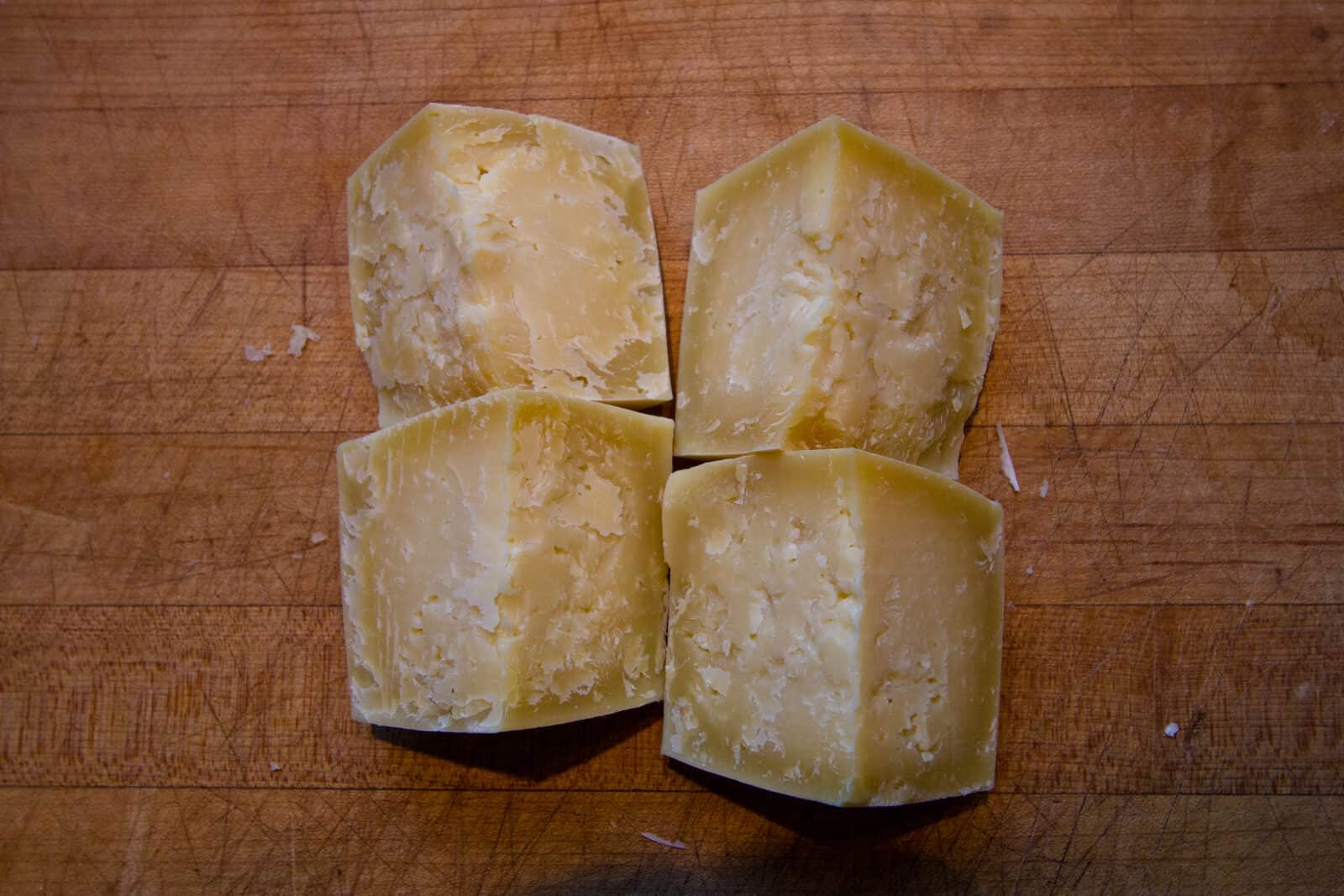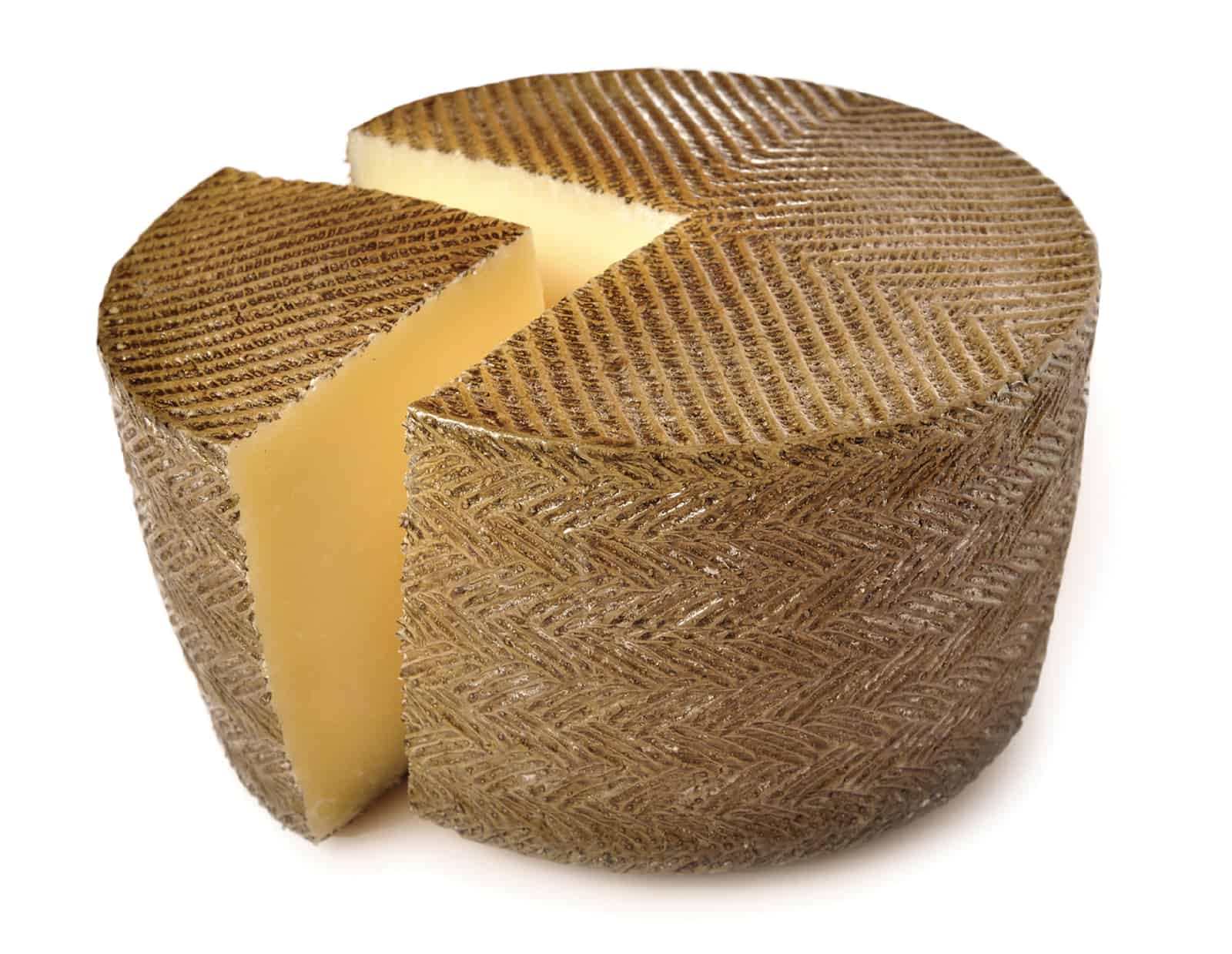
You might have noticed the cheese world buzzing about the Trump administration’s tariffs on European Union (EU) goods that went into effect October 18. They impact American access to imported wine, olive oil, and (gasp!) some of our favorite cheeses. Here are four things you need to know.
1. What are the tariffs even about?
In response to the EU subsidizing Airbus (rival to American-owned Boeing), the Trump administration proposed retaliatory tariffs on select European goods. While the original dispute lies within the aerospace industry, the tariffs are also leveled against foodstuffs such as wine, olive oil, and cheese.
“[The dispute] should be resolved in that sector,” says Philip Marfuggi, president and CEO of the Ambriola Company, one of the largest U.S. importers of Italian cheeses. “Cheese, wine, pasta, and a multitude of other products [subject to tariffs] have nothing to do with the airline manufacturing industry.”

Photo Credit: “Head of camembert” by alexpro9500 | Shutterstock
2. How will American consumers and businesses be affected?
There are multiple ways these tariffs force change. Imported cheeses now face a 25% tariff. Larger companies and importers stockpiled cheese in anticipation of the price hikes, but many smaller businesses lacked the space and the funds for preemptive action. Since cheese retailers already operate on razor-thin margins thanks to the short shelf life of their wares, many are unable to stock cheese they might not be able to sell.
Higher prices lead to a loss of revenue, which causes a fall in employment. From cheese transporters to importers to mongers and retailers, there simply isn’t enough business to pay wages. “We estimate that, at minimum, the tariffs would put 20,000 jobs related to importing cheese at risk,” says Marfuggi.
3. Which cheeses would be affected?
A wide range of cheeses as well as other dairy products are affected. Although imports from all European countries are subject to the tariffs, they are particularly concentrated on France, Germany, Spain, and the U.K. Expect to pay more for Parmigiano Reggiano, Roquefort, and Manchego, as well as select types of yogurt and butter.

4. So what now?
“We hope that somebody is advising the White House that this action will hurt the US economy and put a number of jobs and companies at risk,” says Marfuggi. Thanks to large businesses stockpiling cheese, consumers can expect prices from those distributors to remain stable through the end of the year.
However, make sure to support your local cheese shop in the upcoming months. The cheese world’s gotta stick together.




Hi Madeline,
How is USof A going to act on the GI rules enforced by EU?
No US producer cheese producer will be allowed to use names like parmigiano or parmesan, mozzarella, brie,feta.
We are facing similar tariffs issues in New Zealand-we do support protectionism against subsidised economies
Regards
Franco.
US cheese makers may benefit but I do not believe they have the quality that Italy and France have.
A level playing field seems fair for US Cheesemakers. https://www.bbc.com/news/world-us-canada-48915578
US cheesemakers may benefit from the tariff.